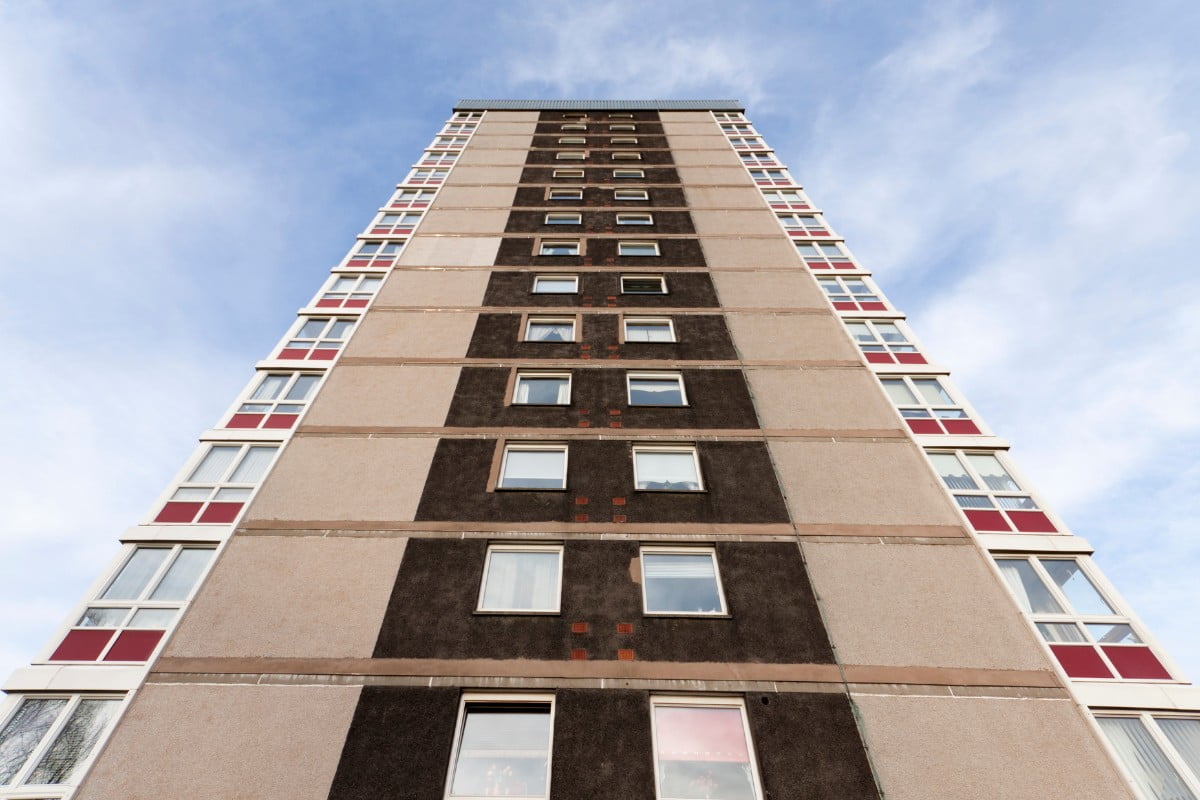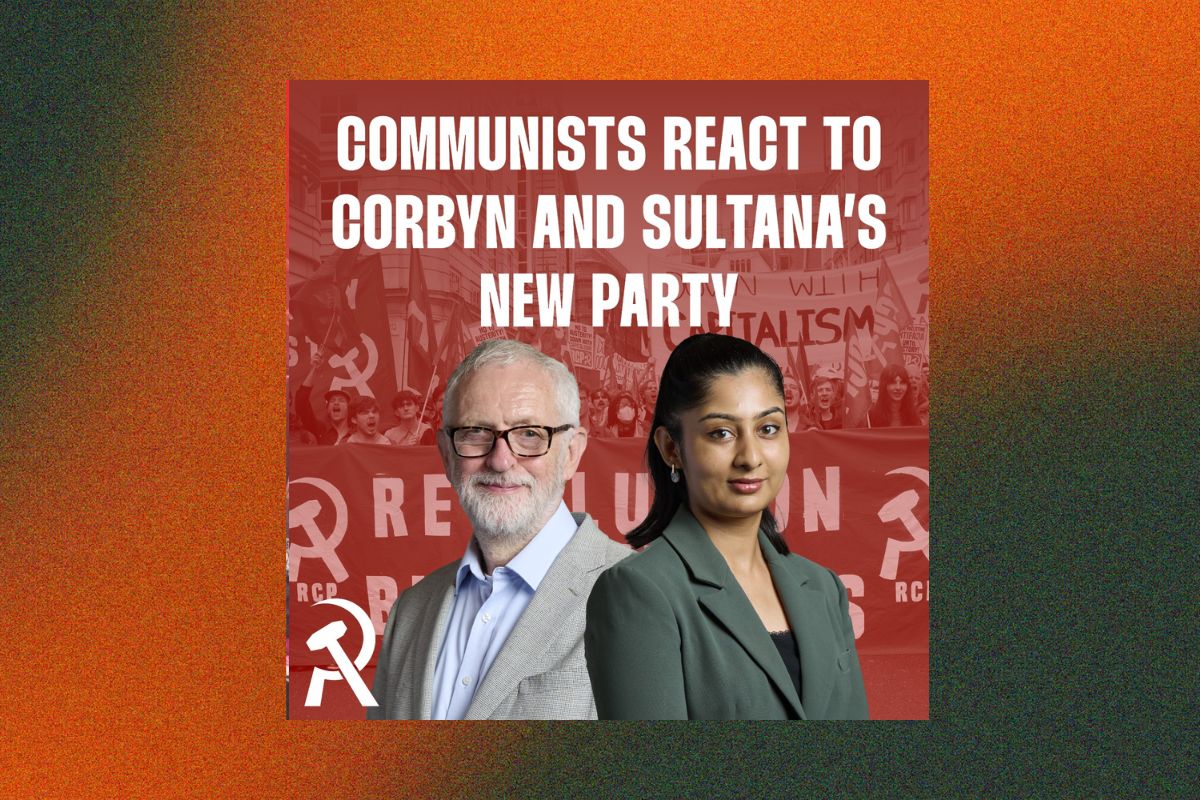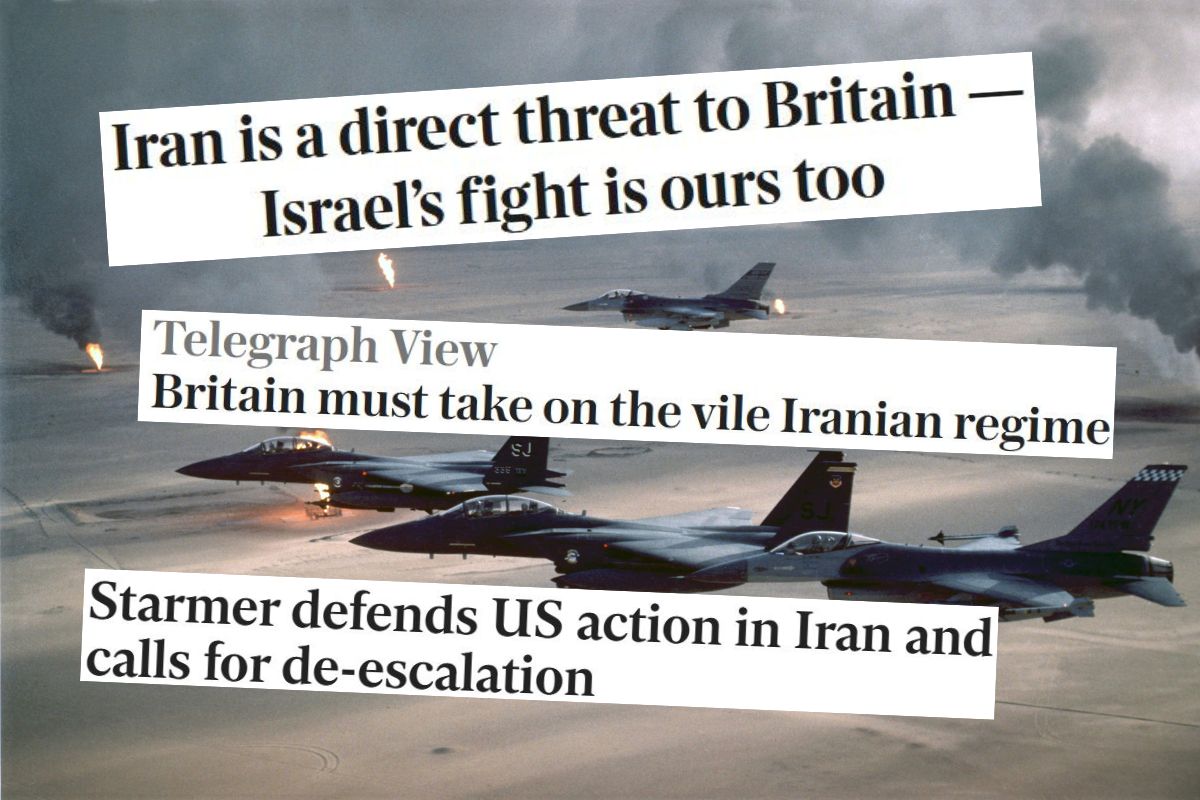We live in dangerous times. We are told that unseen and anonymous evildoers are lurking in the shadows, planning acts of great atrocity. Countries populated by individuals with dark skins and sinister beards are busy building "weapons of mass destruction" at this very moment, ready – we are "informed" – to unleash on our green and pleasant land.
OK, we found none in Iraq but, hey, they are out there somewhere. "Security" is the potent buzzword of the British and American political elite. Blair and Bush are in a media comfort zone when they speak to the press of the need for "security". Security is newsworthy because it is sensational; it is exciting. It gives the public the impression that reporters know more than they are allowed to tell us when they speak of such important matters.
In the US scarcely a week goes by without some new "state of alert" or "potentially foiled plot" being announced by the Bush administration – none of which ever seems to come to anything but which serves to keep the "we are under attack" mood going. For Bush and Blair the lesson is clear: Fear is the key.
Of course, no socialist would seek to justify or condone the atrocities of 9/11 or the bombings in London last July, or Madrid or anywhere else for that matter. The pages of the British Marxist journal Socialist Appeal have explained repeatedly that nothing will ever be gained by individual terrorism. Acts of terrorism are always used by the state to justify the introduction of draconian laws which push back the modest reforms and rights of the working class. Far from achieving their aims, the acts of terrorists – seeking to put themselves forward as replacements for a power which does frighten the ruling class, namely that of organised labour – serves to push those aims further away from being achieved. Instead the state is able to take cynical advantage of the mood of fear and anger which inevitably rises up, especially when it is ordinary people who end up shedding blood.
Many are now prepared to swallow the line that the present laws are not strong enough, that emergency measures are required to keep us safe from the evil doers and so on. The reactionary politicians tell us in all sincerity: "The circumstances demand that we suspend the normal democratic procedures. We need to stop individuals from going about their lawful business. We must detain and commit 'suspects' to prison without allowing them to seek legal advice or undergoing any judicial process. In difficult circumstances we shall shoot people if we feel we have good grounds, even if they are electricians on their way to work."
Scapegoats
In modern times there is hardly a generation that hasn't been carried along on a great wave of moral panic, because it is an area where there is always an issue and usually a scapegoat. In the early part of the twentieth century it was the Germans, followed by the Bolsheviks, then after World War 2, the ambiguous Cold War threat of communism reaching its climax in the McCarthy era. Thatcher and Reagan raised it again, enjoying a mild revival in the 1980s. Now Bush and Blair blame Islamic fundamentalism and seek to link terrorism by a million threads to immigration and Asian communities, while rags like the Daily Express ubiquitously claim that Muslim terrorists threaten the very fabric of that elusive entity that is "western civilisation".
And, as anyone who follows the news knows, this constant creation of a climate of fear produces a collective sense of national insecurity, expertly fostered by the powerful individuals who run the show, which in turn demands collusion and compliance by large sections of the population with regard to measures they would not normally entertain. Branches of the security services with mysterious titles are formed, temporarily, we are told, before that body grows arms and legs of its own and survives into the next generation, and the next; usually answerable to no-one!
When you speak to people in the street or in the pub, they will tell you that Britain and America are democracies. Some will say we have a "free press", "free speech", an "independent judicial system", and that an accused person is "innocent until proved guilty after a fair trial". After all, this is what they have been told all their lives unless reality intervenes to provide a glimpse of the truth.
And this is the crux of the matter. It is becoming clear that on closer examination of our "democracy" we see major contradictions being revealed. Initially, the contradiction seems superficial. People might say, "Well, these are special times requiring emergency measures. If you haven't done anything wrong you have nothing to fear". But a more sinister contradiction lies underneath and is not so easily explained.
It is the professional politicians and the judges, the leaders of the armed forces, the Chief Constables, the religious leaders, the directors of the banks and their hired mouthpieces and the proprietors of the "free press" who all shout from the rooftops that we live in a "democracy". Yet it is these very same people who now tell us that to defeat the menace of global terrorism then the "democracy" they praise is of no use and must be "revised".
Marxists have always sought to explain that whilst, in the modern world, capitalism and their political representatives usually argue that bourgeois parliamentary democracy is the best system for us all to have, complete with "independent" justice systems, etc., for them this is not a golden rule. Capitalism likes this set-up because it gives the impression that we control our own lives whilst keeping real power nice and safe in the hands of the ruling class. In effect we rubber-stamp our own exploitation and the maintenance of class rule. Yet when it becomes necessary to protect their privileges and power, they will be quite prepared to abandon some or all of these so-called rights like so much waste paper. The contradiction, which they are prepared to argue, is that to defend our rights they must be taken away!
The government has therefore been hard at work eroding our rights, supposedly in our best interests. Most notably, we have seen the latest step in the approval of measures to bring in ID cards following the February vote in the House of Commons which has rejected the amendments from the Lords and sent the bill back for reconsideration in March. As things now stand not only will ID cards come in, but also by tying them to passport renewals they will be, in reality, compulsory for up to 90% of the population within a decade of introduction.
Charles Clarke has made it very plain: "We have always been clear that the identity cards scheme is being designed and is intended, eventually, to become a compulsory scheme for all UK residents." Full compulsion could be enacted at a later stage by the government without any further reference to Parliament using the Legislative and Regulatory Reform Bill now being debated which would enable the 1539 Statute of Proclamations to be used for this purpose.
ID cards will be linked to the even more sinister national database which will contain all manner of information about us. For good measure the whole scheme will be subject to part privatisation which will create massive profits for firms at our expense – because, yes, we will have to pay for the honour of having these cards both directly and through taxes.
And for what? There are extreme doubts that the national database will actually work as a means of monitoring crime or terrorism. None of the computer systems needed to make such aims viable are up and running yet and many experts have already hinted that the technical problems may be difficult to overcome in the short or even medium term. It is also worth noting that every time governments have gone to the private sector to bring in a new major computer system there have been huge problems and delays. Not a good track record there!
The government have also been less than clear as to how having ID cards will actually stop terrorist acts taking place. There is no evidence of terrorism being curtailed in those countries that already have a system of ID cards. In fact terrorists in recent times have been quite keen to ensure that they carry sufficient ID with them to ensure that people know who they were. In truth the government know that ID cards will do little to combat terrorism, simply serving to give the impression that something is being done. The real benefits for them have little to do with terrorism or even combating normal crime for that matter.
Using the fear
Over the years, successive governments have sought to find ways of sneaking ID cards for all onto the statute books. In the 1980s Thatcher wanted to introduce ID cards for those attending football matches, which would have opened the doors for a later national scheme. However the conclusions of the official inquiry into the Hillsborough disaster knocked that plan on the head. Now New Labour, using the fear of fundamentalist bombers, is trying again.
They know that an ID card system will provide new ways of curtailing our liberties, controlling information and generally keeping a firm grip on people. In effect we could end up with being forced to carry a government version of a Nectar Card! It will increasingly be the norm to see people being stopped by police to "show their papers" and, if it suits their purpose, being whisked away on the grounds that they are "not in order". Many on the fringes of society, unable to get a legitimate card, will disappear into the Grey Economy to be exploited at will, totally without protection. Some in the government have already stopped talking about tackling terrorism and now talk about cutting back on benefit costs. Ironically some IT experts now think the whole scheme will be "hackable" and subject to fraud and deception.
We are also seeing attempts to bring into law an offence against "glorifying" terrorism. Quite sensible some might think, except that the government do not seem very keen to tighten up their definitions in a way which might make it reasonable to get a conviction in a court of law. As things stand it would be very difficult for anyone not to be "glorifying" terrorism in one form or another, so wide ranging is the possible interpretation of the proposed law. The suspicion is that this law will be used as a "catch-all" means of threatening people and derailing supposedly legitimate protest. After all ASBOs have been used against protestors and campaigners and, going further back in time, the Prevention of Terrorism Act in the 1970s was used against trade unionists.
At present the government is continuing to bank on a climate of fear to maintain support for these measures. But this will start to unravel, especially as the true purpose and costs become clearer (something the government seems to be at great pains to avoid), and opposition will grow. A Labour movement campaign must be organised against these attacks. After all it was the trade unions and their political representatives which first led the way in establishing many of the rights we have until recently taken so much for granted and are now seeing under threat in the interests of profit.






